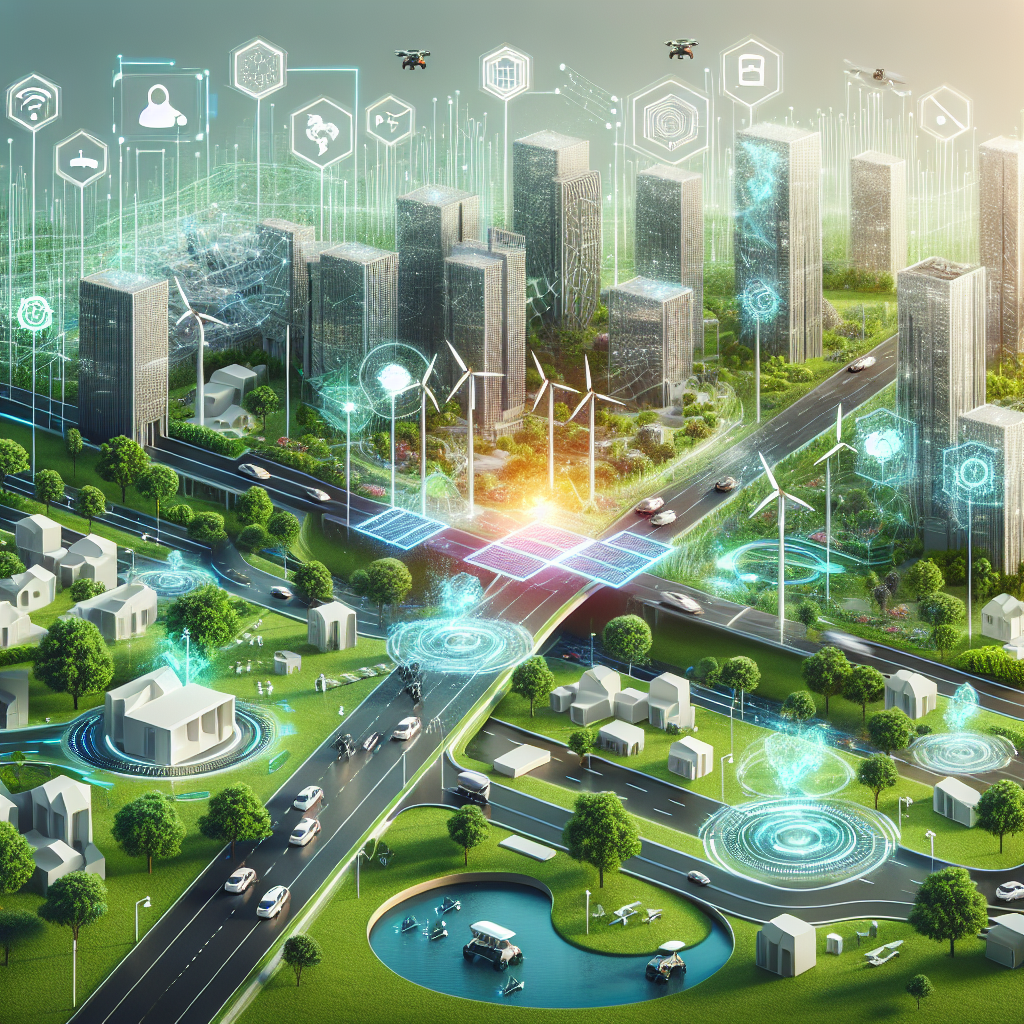Generative AI in Smart Cities: Enhancing Urban Development
In recent years, the concept of smart cities has gained traction as governments and urban planners look for innovative ways to improve the quality of life for residents. Smart cities leverage technology and data to make urban systems more efficient, sustainable, and responsive to the needs of citizens. One key technology that is driving the development of smart cities is generative artificial intelligence (AI).
Generative AI refers to a type of AI that is able to generate new content, such as images, text, or music, based on patterns it has learned from existing data. In the context of smart cities, generative AI can be used to analyze vast amounts of data collected from sensors, cameras, and other sources to make predictions about urban trends, optimize resource allocation, and even create virtual simulations of city environments.
One of the main benefits of using generative AI in smart cities is its ability to optimize urban development processes. By analyzing data on traffic patterns, air quality, energy consumption, and other factors, generative AI can help city planners make informed decisions about where to build new infrastructure, how to reduce congestion, and how to improve overall sustainability. This can lead to more efficient use of resources, reduced environmental impact, and better quality of life for residents.
Generative AI can also be used to create virtual simulations of urban environments, allowing planners to test different scenarios and see how changes in infrastructure or policies will impact the city. This can help identify potential problems before they occur, saving time and money in the long run. For example, generative AI could be used to simulate the effects of a new subway line on traffic flow, or to predict the spread of a disease outbreak based on data from healthcare systems.
Another key application of generative AI in smart cities is in the field of autonomous vehicles. By analyzing data on traffic patterns, road conditions, and weather, generative AI can help self-driving cars navigate city streets more safely and efficiently. This can lead to reduced congestion, fewer accidents, and lower emissions, making cities more livable for residents.
Overall, generative AI has the potential to revolutionize urban development by providing planners with valuable insights and tools to create more sustainable and efficient cities. As the technology continues to evolve, we can expect to see even more innovative applications of generative AI in smart cities in the future.
FAQs
Q: How does generative AI differ from other types of AI?
A: Generative AI is unique in that it is able to create new content based on patterns it has learned from existing data. This sets it apart from other types of AI, such as machine learning, which are focused on making predictions based on data.
Q: What are some examples of generative AI applications in smart cities?
A: Some examples of generative AI applications in smart cities include analyzing traffic patterns to optimize road infrastructure, creating virtual simulations of urban environments to test different scenarios, and helping autonomous vehicles navigate city streets more efficiently.
Q: How can generative AI help improve sustainability in smart cities?
A: Generative AI can help improve sustainability in smart cities by analyzing data on energy consumption, air quality, and other factors to optimize resource allocation and reduce environmental impact. This can lead to more efficient use of resources and a lower carbon footprint for the city.
Q: Are there any privacy concerns associated with using generative AI in smart cities?
A: Privacy concerns are always a consideration when using AI in urban environments, as the technology relies on collecting and analyzing large amounts of data. It is important for city planners to implement robust data protection measures to ensure that residents’ privacy is respected.
Q: What are some challenges to implementing generative AI in smart cities?
A: Some challenges to implementing generative AI in smart cities include the complexity of analyzing large amounts of data, the need for high-performance computing resources, and the potential for bias in AI algorithms. It is important for city planners to address these challenges to ensure that generative AI is used responsibly and ethically.

